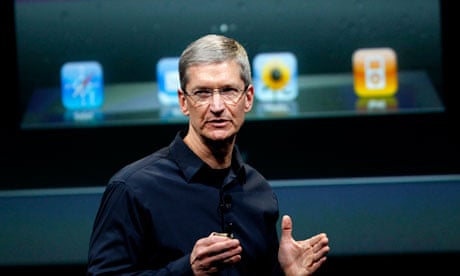After months of rumors, speculation and outright fiction-mongering,
we'll know today precisely what Apple is launching this fall. If the most widespread rumors are true, there will be several new iPhones, maybe a new Mac computer and, just possibly, the fabled Apple TV. (UPDATE: It's two new phones, an operating system tweak and little else.) I don't especially care, because I long ago left the Apple ecosystem.
The reason I left prompts me to hope Apple will make the kind of announcement that I'm fairly sure is not in the cards. That would be a decision to relax the control-freakery that has become one of the company's signature traits.
Apple is far from alone in its assertion of control over its customers and "partners" – but it is among the most demanding. In particular, the company has locked down its iOS mobile ecosystem. If you buy an iPhone or iPad, you are only allowed to use software that Apple allows. If you are a software developer, you can only sell your products through Apple, which may well decide what you have created is unworthy or too competitive with Apple's own offerings. If your app or book violates Apple's vague morality standards, you're out. And if you make peripheral hardware for the mobile devices, Apple will make you pay a fee (or lock you out).
It's not so bad – yet – with the Mac platform, which has been relatively open from a software standpoint, roughly in the same category as Microsoft Windows. In both cases, one vendor owns the underlying operating system, but anyone can write an application to run on top of it. Even there, however, Apple has been ratcheting up its control in ways that suggest it'll someday create as serious restrictions on Mac developers and users.
All of which is why I'd like to see Apple dial back the control. There's a way to do this and still provide what many if not most customers, to be fair, do prefer – to live entirely in Apple's embrace and to let Apple make most of the decisions. How could the company make all this possible? Easy: Provide a choice.
If it trusted its users more, Apple could create a setting that any iPhone or iPad user could switch on. Let's call it the "User in Charge" setting though Apple would surely call it something else, perhaps the "Risky Business" setting. Here's how it would work.
If you selected "User in Charge", you would be able to use the device as you want to use it, not only as Apple specifies. Specifically, you could install non-approved software. You could buy it from anyone who wanted to sell it to you. This would apply not just to apps, but also to books, videos and other material. I'd have no problem if Apple issued a stern warning when you selected that setting. It could say, for example, "You are doing this entirely at your own risk. If you have any problems, we are not responsible in any way. And if you need technical support, you'll need to restore your phone to its original settings first."
The other message Apple would send with this setting might be verbalized this way: "We at Apple strongly believe you're better off letting us make key decisions for you. Our App Store is safer, because we check apps before they are offered to you. We don't allow porn or other things that might offend you, because we think that's how you prefer it. But we recognize that you spent a lot of your hard-earned money on this device, either directly or through a carrier subsidy that you'll be paying off over time. You own it, and you have the right to use it as you see fit."
I'm betting that 80-90% of Apple customers would stick with the company's warm embrace. So be it. The default is usually what wins. But when we default to ceding control over what we supposedly own to a company that has often demonstrated its willingness to abuse that control, we are making a mistake in the long run.
Needless to say, my scenario has almost no chance of becoming reality. Sad to say, control-freakery is a growing part of the overall tech and communications industry, as companies centralize power and become partners with government spies in the process. But out at the edges, where some customers still value their liberty, the discontent with this behavior is growing.
Apple CEO Tim Cook has, if nothing else, demonstrated an ability to be a pragmatist. Surprises are a common theme of Apple keynotes. I'd be thrilled beyond belief if Cook would spring this surprise on the world, someday soon.
